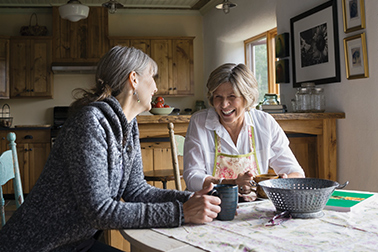Download this article as a PDF
Urinary incontinence
Urinary incontinence (or poor bladder control) is a common condition that is commonly associated with pregnancy, childbirth, menopause or a range of chronic conditions such as asthma, diabetes or arthritis.
Poor bladder control can range from the occasional leak when you laugh, cough or exercise to the complete inability to control your bladder, which may cause you to completely wet yourself. Other symptoms you may experience include the constant need to urgently or frequently visit the toilet, associated with ‘accidents’.
There are different types of incontinence with a number of possible causes. The following are the most common:
- stress incontinence: is urine leakage after movement like when you cough, sneeze, lift, bend, laugh or play sport.
- urge incontinence: is a sudden desire to urinate, without enough time to make it to the toilet.
- reflex incontinence: is loss of urine without bladder sensation, due to damage to the nerves controlling bladder function.
- overflow incontinence: is where the bladder doesn’t empty properly, perhaps due to outlet obstruction or low bladder tone.
- functional incontinence: is where a person’s ability to reach or use the toilet is compromised – perhaps because of poor building design or loss of mobility or memory.
Urinary incontinence can be caused by many things, but can be treated, better managed and in many cases cured. For this reason, it is important to talk to your doctor or a continence advisor about your symptoms, in order to identify which type of incontinence you’re facing which will influence treatment.
Faecal incontinence
People with poor bowel control or faecal incontinence have difficulty controlling their bowels. This may mean you pass faeces or stools at the wrong time or in the wrong place. You may also find you pass wind when you don’t mean to or experience staining of your underwear.
About one in 20 people experience poor bowel control. It is more common as you get older, but a lot of young people also have poor bowel control. Many people with poor bowel control also have poor bladder control.
Faecal incontinence can have a number of possible causes. The following are the most common:
- weak back passage muscles due to having babies, getting older, some types of surgery or radiation therapy
- constipation, or
- severe diarrhoea.


